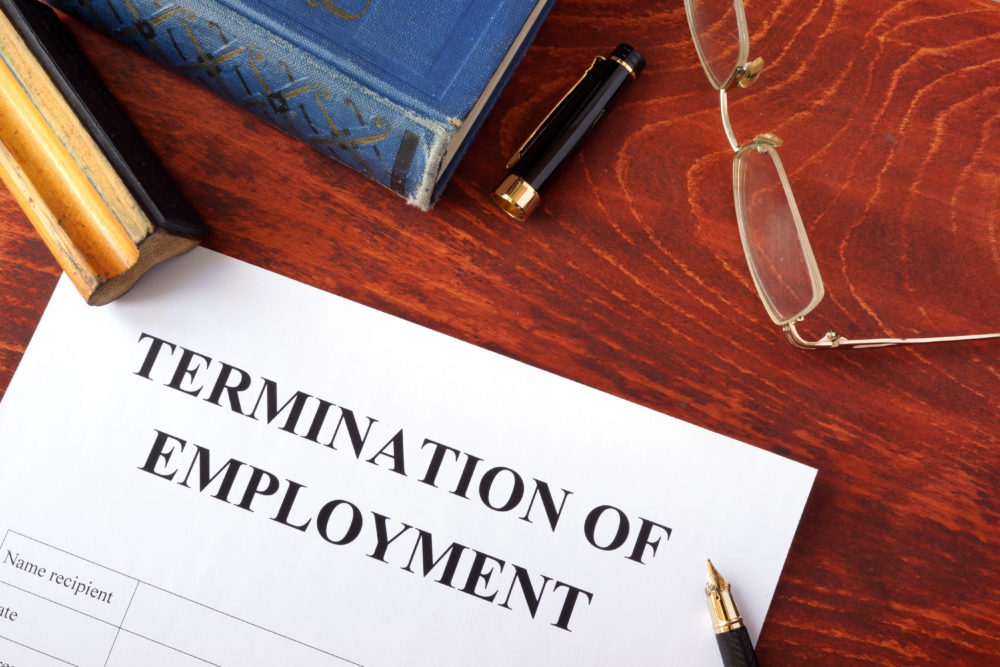Dismissing an employee is never an easy process, and many employers will avoid taking action against a problem or under-performing member of staff out of fear of a claim in the employment tribunal.
However, while the dismissal process may seem complicated and risky, for many businesses, failing to tackle problem employees can have huge repercussions for the future; and a failure to act risks damaging the business in both the short and longer term.
Wrongful and unfair dismissal
Wrongful dismissal is a dismissal in breach of the employee’s contract and applies where the employer has terminated employment without full notice. The value of a wrongful dismissal claim is usually limited to the pay and benefits the employee would have received during the notice period provided by the employment contract.
Unfair dismissal is where employment is terminated, and the employer did not have a fair reason for the dismissal. Alternatively, a dismissal may have been fair in theory, but the employer’s failure to follow the correct procedure renders it unfair as a result.

It is worthwhile noting that an individual will require two years of service before they are eligible to bring a claim in the employment tribunal for unfair dismissal. This period of service, know as the ‘qualifying period’ does not apply however to discrimination claims.
Employers will therefore need to be very clear about the reasons behind any dismissal process. They must ensure they are not directly or indirectly discriminating against the employee in question, or that the reasons behind any under-performance or misconduct relate to any of the protected characteristics within The Equality Act 2010, such as disability causing sickness absence.
There is no qualifying period for a wrongful dismissal claim.
What is fair?
A fair dismissal is one that is based upon one of five potentially fair reasons. These are: the individual’s conduct, their capability or qualifications for the job, redundancy, a statutory duty or restriction prohibiting the employment being continued or because of a substantial reason which justifies the dismissal.
See also: The Small Business guide to HR
In addition to the requirement of a potentially fair reason as a baseline, employers must also ensure that the dismissal process they follow is procedurally fair. This means that they must follow their disciplinary policy and the ACAS Code of Practice (which in practice is likely to be similar to the policy). Failure to follow the ACAS code can result in a 25 per cent uplift to any damages awarded to an unfairly dismissed individual.
“Employers must also ensure that the dismissal process they follow is procedurally fair”
Further, an employee should know the allegations against them, as well as that dismissal is a possible outcome; they should be allowed to make representations, be accompanied at the disciplinary and appeal hearings and be given a right of appeal.
The following are all examples of potentially fair reasons for dismissing an employee:
Conduct – Where the employee’s behaviour is seriously unacceptable, for example, repeated lateness or drunkenness at work.
Capability – Where the employee doesn’t have the right skills or aptitude to do the job or is frequently absent through ill-health.
You should always consider training to improve capabilities or moving an employee to a suitable alternative position, with their consent, before dismissal. Remember that is it unlawful for an employer to discriminate against a person because of a disability. You have a duty to make ‘reasonable adjustments’ to workplaces and working practices to make sure that employees with a disability are not at a substantial disadvantage compared to other people.
Legality – To avoid breaking the law, for example, where the loss of their driving licence means the taxi driver cannot drive legally.
Redundancy – For example, where there is insufficient work or an employer is closing down entirely.
Some other substantial reason – This is called the catch-all reason but it should be used carefully, as you have to show that the reason was ‘substantial’. A major company restructuring could be an example.
Remember of course that all of the above examples are not ‘fair’ reasons until the procedure has been followed and the allegations investigated and proven. Failure to follow the procedure, as noted above, is likely to render a potentially fair dismissal, procedurally unfair.

The maximum award for compensation for unfair dismissal is £89,493, or 52 weeks’ gross salary – whichever is the lower of the two. These limits apply for a dismissal on or after April 6 2021.
How to stay within the law
Employers must have detailed and up-to-date employment contracts in place, and need to show that they have followed the correct procedures laid out in these contracts fairly and competently.
In situations in which a dismissal is a potential outcome, they must be scrupulously careful in ensuring they follow all procedural steps. They may also want to consider taking external advice from either an employment solicitor or HR practitioner to guide them through the process, and act as a third party observer.
Employers who dismiss unilaterally, or without reference to the five potentially fair reasons outlined earlier put themselves at significant risk of tribunal claims. In any event, it is always sensible to take detailed legal advice on all matters that could result in the dismissal of an employee.
You are advised to take legal advice in respect of the particular case before dismissing any employee.
Simon Robinson is managing partner of RobinsonRalph.





